
Intestinal flora is the general name of the microbiota living in the human intestinal tract, which is related to the human immune system, endocrine system and other metabolic pathways.
If the flora balance is destroyed, the health status of human body will also change, which may lead to constipation, diarrhea, enteritis, etc., and even affect the life span seriously.
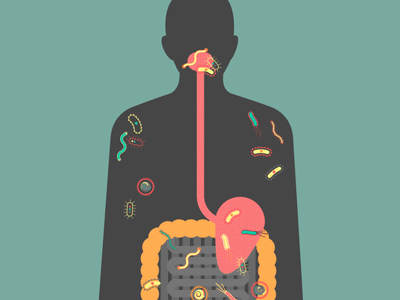
This intestinal bacterium is on the “carcinogenic” blacklist
Recently, a study was published in the famous journal Cancer discovery. Researchers used enteropathogenic Escherichia coli and enterohemorrhagic Escherichia coli to evaluate the ability of adhesive pathogens to induce colon cancer.
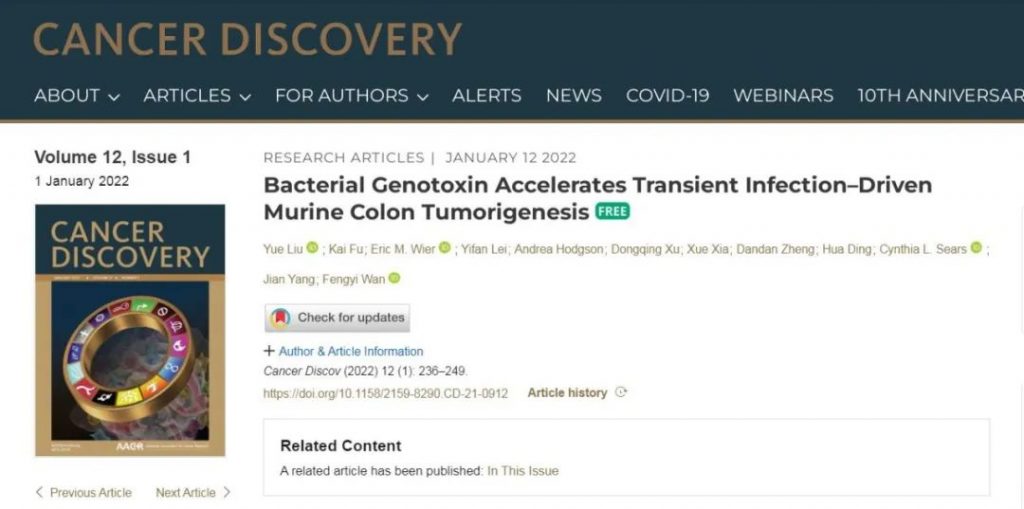
They found that the adhesive pathogenic bacteria in the intestine can connect with intestinal epithelial cells through its type 3 secretion system (T3SS) and inject gene toxins to destroy the DNA in the host intestinal epithelial cells, leading to cell carcinogenesis and the occurrence of colorectal cancer.
In 2020, the international authoritative journal Nature published an important study on colorectal cancer. Scientists put forward evidence that infection with specific intestinal bacteria can lead to cancer mutation.
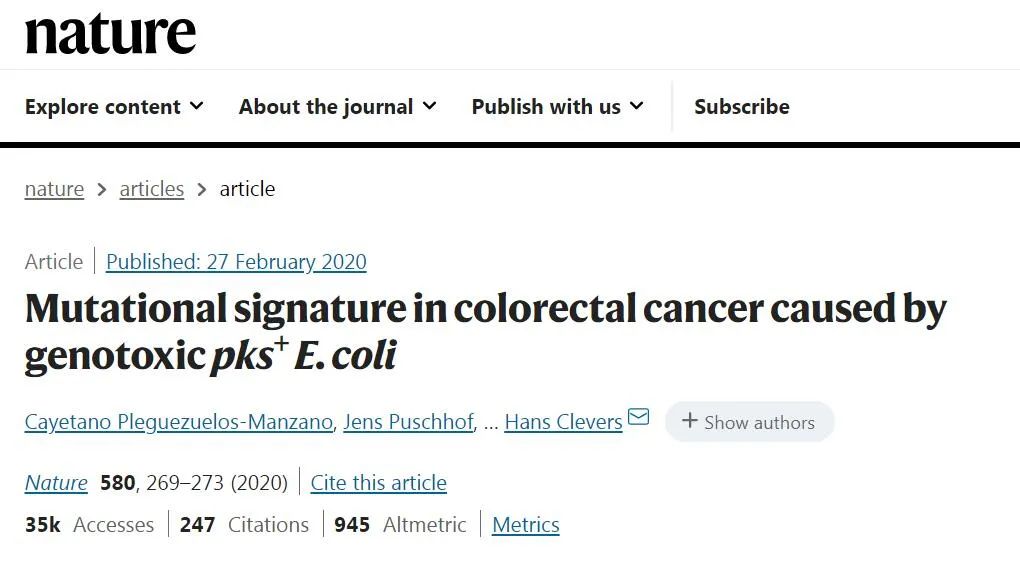
E. coli is mainly attached to human or animal intestines. Most of them will not bring harm to the body, but can inhibit the reproduction of intestinal pathogenic bacteria and other pathogens.
Some pathogenic Escherichia coli can cause diarrhea, hemorrhagic colitis and other symptoms; Diarrhea, alternating constipation, changes in defecation habits and stool traits are important indicators for the early detection of colorectal cancer.
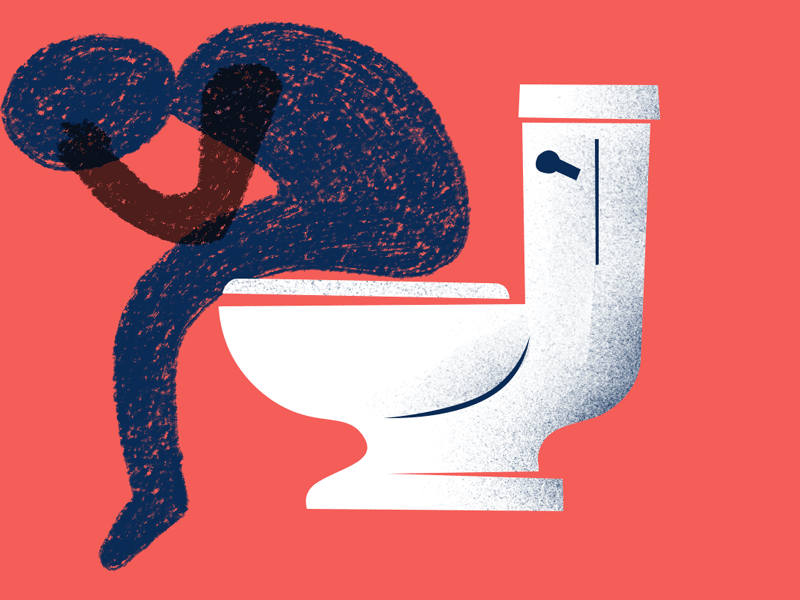
Therefore, when diarrhea occurs, do not attribute it to eating too many cold drinks, food deterioration and other reasons. If it is generalized, it will make some diseases “fish out of the net”.
The following five kinds of diarrhea are recommended for medical treatment
1. Acute diarrhea, accompanied by frequent vomiting, fever, severe abdominal pain, or dehydration such as dizziness, palpitation, dry mouth and oliguria.
2. Acute diarrhea without remission within 48 hours.
3. Diarrhea with mucus, bloody stool or black stool.
4. Patients with chronic diarrhea but a history of colorectal polyps or cholecystectomy, or a family history of colorectal cancer need to be vigilant.
5. Patients with long-term constipation in the past have recent changes in stool habits or traits and diarrhea.
5 types of Escherichia coli can cause disease
Coliform is an indicator of food hygiene, including Escherichia coli, Citrobacter, Klebsiella aerogenes and Clorox. However, the presence of pathogenic E. coli bacteria in the coliform flora can lead to foodborne illness.
There were three outbreaks of Escherichia coli in the United States in 1991, 1993 and 1996.
In 2014, there were more than 400 patients in the E. coli poisoning incident in Japan.
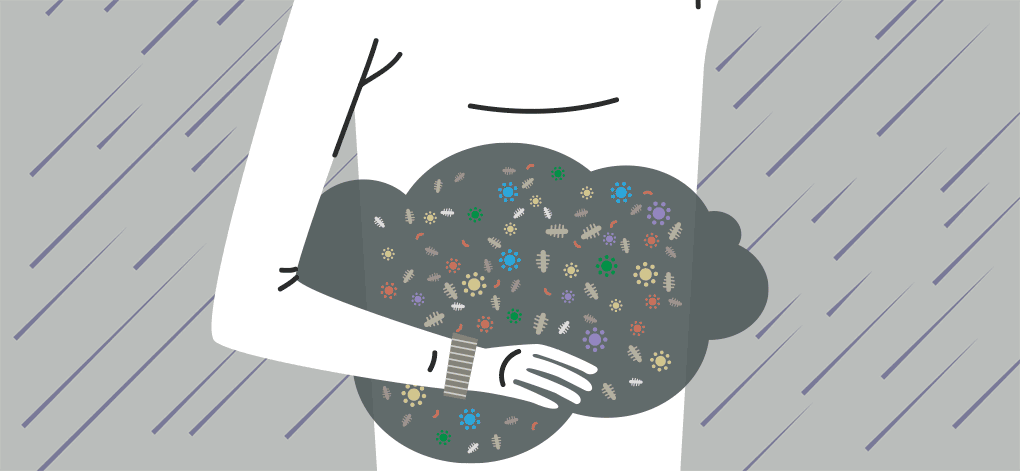
Children, the elderly, pregnant women and those with weakened immunity are at high risk of pathogenic E. coli infection. Although most patients can recover in a short time, the harm of some pathogenic Escherichia coli should not be underestimated.
For example, the main pathogenic strain O157:H7 in Enterohemorrhagic Escherichia coli has strong acid resistance and can resist the digestive effect of gastric acid, and it is easy for people to be poisoned when eaten.
Not only does it produce Shiga toxin (which causes dysentery symptoms), but it also attaches to the intestinal wall, causing damage to the intestinal mucosa, causing bloody diarrhea and hemolysis characterized by acute renal failure, hemolytic anemia, and thrombocytopenia Sexual uremia.
5 points to prevent pathogenic bacteria
Escherichia coli poisoning is a typical “disease from the mouth”. Following the five key points of food safety recommended by the World Health Organization can effectively prevent foodborne diseases such as Escherichia coli food poisoning.
keep clean
Wash hands frequently, keep kitchen utensils clean; keep animals away from food.
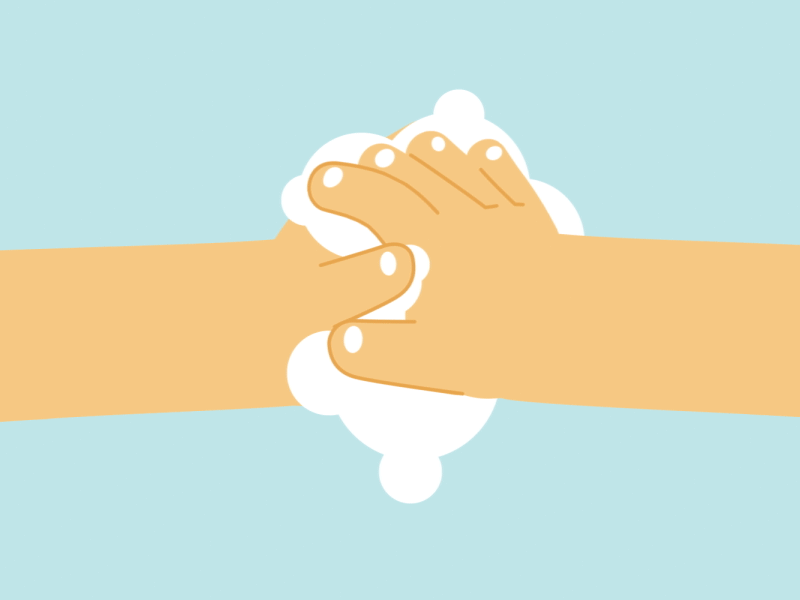
Raw and cooked separation
Raw and cooked food are separated, and special kitchen utensils are used for handling raw food.
fully cooked
The meat, poultry, and seafood are thoroughly cooked, and the soup is boiled; cooked food should be reheated thoroughly.
Keep food at a safe temperature
Cooked and perishable foods are cooled promptly; refrigerators do not store foods for long; frozen foods are not thawed at room temperature.
Use safe water and raw materials
Choose a reputable business place to buy food; wash fruits and vegetables; do not eat spoiled food.
Comments